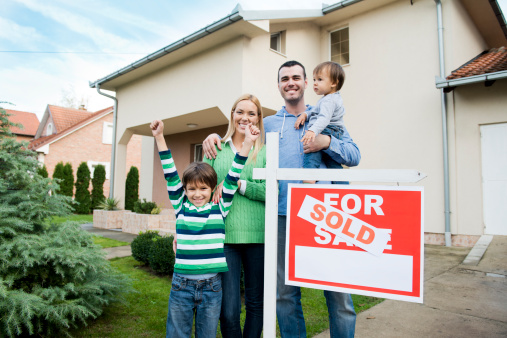
Yes, as crazy as it sounds, I used the phrase “real estate bubble” to describe a market that only a few years ago experienced a most devastating deflationary crash. Could it happen again? Absolutely. With large investors laden with cash (that has been easily accessible due to very low government-regulated interest rates), lots of pent-up demand from individual investors, and still low interest rates, cash continues to pour into real estate at a phenomenal pace and drive an unexpectedly rapid reversal in real estate valuations.
What could bring this to an end? Any of those factors, among others, could reverse: interest rates must eventually rise to moderate inflation, even cash-laden investors will eventually deploy all of their cash, and the pent-up demand will finally be met. The question is: when it ends, will it be a healthy, organized, and gradual flattening or will we experience a smaller version of what happened between 2007 and 2009?
My friends know that I’m a fan of real estate investing over most other types of investment. Many of them, over the past few months, have asked my opinion about the state of the real estate market and whether now was still a good time to make a move buying a newer or larger home. Most are finding it a difficult decision and a frustrating situation with a market which, in many locations in the US, has limited inventory, rapidly spiking asking prices, and interest rates that have gone up roughly 1% in a matter of a couple of months.
 A “bubble” results when prices of an asset are artificially-inflated well beyond the valuations justified by the fundamentals of the asset; these fundamentals are essentially functions of supply and demand for the asset. In the case of real estate, the fundamentals are things like the number of new homes being built, the rate of population growth, and income growth in a market. Those fundamental factors can be counteracted by artificially-controlled (and thus quick to change) parameters such as interest rates and easy access to mortgages.
A “bubble” results when prices of an asset are artificially-inflated well beyond the valuations justified by the fundamentals of the asset; these fundamentals are essentially functions of supply and demand for the asset. In the case of real estate, the fundamentals are things like the number of new homes being built, the rate of population growth, and income growth in a market. Those fundamental factors can be counteracted by artificially-controlled (and thus quick to change) parameters such as interest rates and easy access to mortgages.
So, what is a layperson to do? My simple advice hasn’t changed since I wrote on this topic a few years ago: use a simple proxy for fundamentals to discern whether a home is fairly-priced. As I described in that earlier post, a very good proxy that most of us can easily discern is using rental rates. While most of us might have a hard time evaluating whether a home is “worth” what someone is asking, we find it easier to evaluate whether someone would pay a certain amount for rent. Dividing the price of the home by its estimated monthly rental value gives you a rental factor; so, for example:
- A home is listed for $275,000 (my friends in CA will chuckle as I believe that’s how much parking spots cost there).
- Similar homes nearby are rented for $1,340 per month.
- The rental factor for the home is $275,000 / $1,340 = 205x.
My rule of thumb is to be very cautious buying a home with a rental factor in excess of 200. While this factor varies slightly for everyone (based on their ability to access loans, the interest rate which they’d pay, their alternative investment options, etc.), it is close enough for most people.
So, the example below would signify a home that is a phenomenally great deal:
- The home is listed for $350,000.
- Similar homes nearby rent for $2,200 per month.
- The rental factor for this home is thus $350,000 / $2,200 = 159x.
And, on the other extreme, the following is an example of a home that is a phenomenally bad deal:
- The home is listed for $280,000.
- Similar homes nearby rent for $1,000 per month.
- The rental factor for the home is $280,000 / $1,000 = 280x.
 Does this mean a home that is already at a factor of 220x will not go up in value? Absolutely not. In fact, some of the hottest markets in the world (e.g., New York City, Barcelona, Paris) demand huge prices creating ridiculous rental factors swayed by the extremes in those markets (e.g., extremely limited supply, extreme concentration of wealth, extreme prestige in owning property in those cities, etc.) However, for most of us living in more earthly locales, the formula should work quite well.
Does this mean a home that is already at a factor of 220x will not go up in value? Absolutely not. In fact, some of the hottest markets in the world (e.g., New York City, Barcelona, Paris) demand huge prices creating ridiculous rental factors swayed by the extremes in those markets (e.g., extremely limited supply, extreme concentration of wealth, extreme prestige in owning property in those cities, etc.) However, for most of us living in more earthly locales, the formula should work quite well.
For me personally, I consider 150x a bargain-basement price (I must admit, I don’t believe I’ve ever seen rental factors below that in my local market) and 200x a cap on what I’m willing to pay for a property I really like. Numbers in excess of 200x I regard as proceed at your own risk.
I hope this helps some of you out there who are trying to make a real estate decision right now.
ps. One thing to remember is that rents can also move up and down so, as long as rents are moving up, so should home valuations.



